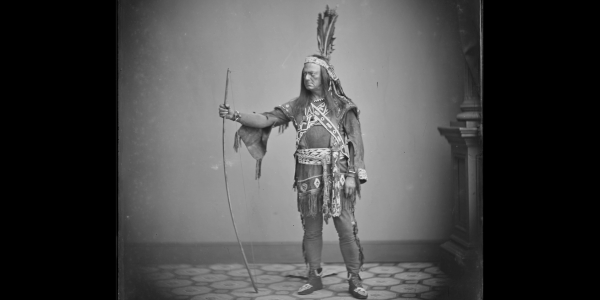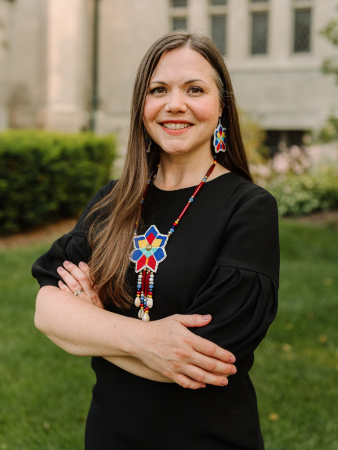Feathers and Facepaint: The Making of Redface in American Theatre
Across the 19th century, American theatre artists and audiences turned to the “Indian” to tell stories of drama, tragedy, comedy, and history. From these diverse but popular plays a recognizable and racialized figure developed, the Stage Indian. This talk tracks the material elements used to create “Indian” characters to explore how theatrical techniques and dramatic repertoires worked with and through settler colonial logics resulting in a recognizable and racialized figure. The Stage Indian is more than feathers and face paint, however. It is an embodied figure whose legibility as an “Indian” is co-constructed with its audience. Tracing instantiations of the "Stage Indian" across the 19th century reveals the saturation, flexibility, and persistence of redface as a tool of U.S. control over Indigenous nations and peoples.
About the Speaker: Bethany Hughes (Choctaw Nation of Oklahoma) is Assistant Professor of Native American Studies in the Department of American Culture at the University of Michigan, where she is also affiliated with the Center for World Performance Studies and the Institute for Research on Women and Gender. Dr. Hughes is a performance scholar and cultural historian interested in how performance constructs culturally recognizable categories and offers possibilities to resist or remake those same categories. Her first book, Redface: Race, Performance, and Indigeneity (forthcoming with NYU Press) draws on the fields of Native American Studies, Theatre, and Performance Studies to ask questions about racialization, representation, authenticity, and authority. Hughes is also interested in federal Indian law, musical theatre, and how economic and organizational structures shape cultural production. Her work can be found in Theatre Journal, Theatre Survey, Mobilities, and Theatre Topics.
All colloquia events are free and open to the public


